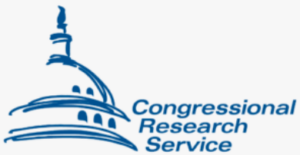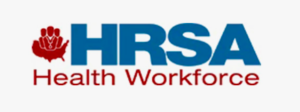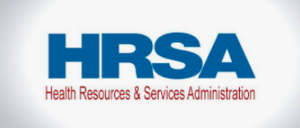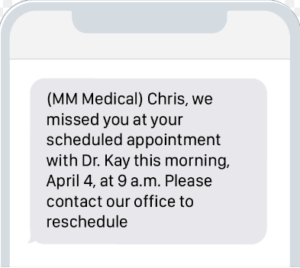- Public Inspection: CMS: Medicare Program: Implementation of Prior Authorization for Select Services for the Wasteful and Inappropriate Services Reduction Model
- CMS: Secretarial Comments on the CBE's (Battelle Memorial Institute) 2024 Activities: Report to Congress and the Secretary of the Department of Health and Human Services
- HHS: Patient Protection and Affordable Care Act: Marketplace Integrity and Affordability
- HRSA Announces Action to Lower Out-of-Pocket Costs for Life-Saving Medications at Health Centers Nationwide
- Public Inspection: HHS: Patient Protection and Affordable Care Act: Marketplace Integrity and Affordability
- Increased Risk of Cyber Threats Against Healthcare and Public Health Sector
- Eight Hospitals Selected for First Cohort of Rural Hospital Stabilization Program
- Announcing the 2030 Census Disclosure Avoidance Research Program
- CMS: Medicare Program; Hospital Inpatient Prospective Payment Systems for Acute Care Hospitals and the Long-Term Care Hospital Prospective Payment System and Policy Changes and Fiscal Year 2026 Rates; Requirements for Quality Programs; and Other Policy Changes; Correction
- CMS: Medicare Program; Hospital Inpatient Prospective Payment Systems for Acute Care Hospitals and the Long-Term Care Hospital Prospective Payment System and Policy Changes and Fiscal Year 2026 Rates; Requirements for Quality Programs; and Other Policy Changes; Correction
- CMS: Medicare and Medicaid Programs; Contract Year 2026 Policy and Technical Changes to the Medicare Advantage Program, Medicare Prescription Drug Benefit Program, Medicare Cost Plan Program, and Programs of All-Inclusive Care for the Elderly; Correction
- CMS: Medicare and Medicaid Programs; Contract Year 2026 Policy and Technical Changes to the Medicare Advantage Program, Medicare Prescription Drug Benefit Program, Medicare Cost Plan Program, and Programs of All-Inclusive Care for the Elderly; Correction
- CMS: Medicare Program; Prospective Payment System and Consolidated Billing for Skilled Nursing Facilities; Updates to the Quality Reporting Program for Federal Fiscal Year 2026
- CMS: Medicare Program; FY 2026 Hospice Wage Index and Payment Rate Update and Hospice Quality Reporting Program Requirements
- Public Inspection: CMS: Medicare Program: Fiscal Year 2026 Hospice Wage Index and Payment Rate Update and Hospice Quality Reporting Program Requirements
Participate in the HRSA Grantee Satisfaction Survey
 – Deadline Extended. Each program director of active HRSA grants has received an invitation to take our new and improved Grantee Satisfaction Survey. With the highest possible response rate through June 24, we can pinpoint crucial areas for action. For general questions about the survey, contact HRSAGranteeSurvey@hrsa.gov
– Deadline Extended. Each program director of active HRSA grants has received an invitation to take our new and improved Grantee Satisfaction Survey. With the highest possible response rate through June 24, we can pinpoint crucial areas for action. For general questions about the survey, contact HRSAGranteeSurvey@hrsa.gov
CRS Answers FAQs about Federal Funding for Health Care Facilities
 The Congressional Research Service (CRS) compiles Frequently Asked Questions (FAQ) with background information on federal programs, including those that may be available to support facilities during an emergency or natural disaster. There are many references to rural throughout, describing facility types, payment models, and rural-specific funding.
The Congressional Research Service (CRS) compiles Frequently Asked Questions (FAQ) with background information on federal programs, including those that may be available to support facilities during an emergency or natural disaster. There are many references to rural throughout, describing facility types, payment models, and rural-specific funding.
White House Releases Factsheet Highlighting Efforts Toward Cybersecurity in Healthcare
 Responding to recent cyber attacks in the health care sector, the White House outlined a number of actions to mitigate further disruption to providers and patients. The factsheet notes rural providers such as Critical Access Hospitals and Rural Emergency Hospitals are particularly vulnerable and details commitments from leading technology companies to provide free and low-cost resources for rural hospitals across the country.
Responding to recent cyber attacks in the health care sector, the White House outlined a number of actions to mitigate further disruption to providers and patients. The factsheet notes rural providers such as Critical Access Hospitals and Rural Emergency Hospitals are particularly vulnerable and details commitments from leading technology companies to provide free and low-cost resources for rural hospitals across the country.
HRSA Makes Awards for the Rural Health Network Development Planning Program

The Federal Office of Rural Health Policy, located in HRSA, awarded approximately $3 million to 30 awardees through the Rural Health Network Development Planning Program to support organizations in their efforts to develop integrated health networks to conduct planning activities over the course of one year, with the goal of expanding access and improving quality of care in the rural communities they serve. The project period is July 1, 2024 through June 30, 2025.
HRSA Invests $11 Million to Expand Medical Residencies in Rural Communities

Today, HRSA announced awards of more than $11 million to 15 organizations to strengthen the health workforce in rural areas. Administered through the Federal Office of Rural Health Policy, located within HRSA, the Rural Residency Planning and Development Program supports the planning and establishment of new residency training programs in family medicine, internal medicine, psychiatry, preventive medicine, obstetrics and gynecology, and general surgery. HRSA-funded research has found that more than half of rural U.S. counties lack hospital obstetric services. In response to the declining rural access to maternal health care, one of the awards will be used to create the first obstetrics and gynecology Rural Track Program in the country. Another six of today’s 15 awards will be used to develop new family medicine residency programs with a focus on enhanced obstetrical training in rural communities. Award recipients will each receive up to $750,000 over three years to establish new rural residency programs. They will use this funding to support accreditation costs, curriculum development, faculty recruitment and retention, resident recruitment activities, and consultation services to inform program development. These awards complement efforts by the Administration and by Congress to reform and expand Medicare payment policies for residency training.
Final Recommendation Statement: Implementing Interventions to Prevent Falls in Community-Dwelling Older Adults

The U.S. Preventive Services Task Force released a final recommendation statement on interventions to prevent falls in community-dwelling older adults. The Task Force found that exercise can help prevent falls in adults 65 and older who are at increased risk. Additional interventions might be helpful for some older adults. To view the recommendation, the evidence on which it is based, and a summary for clinicians, please go here.
State Tobacco-Related Disparities Dashboard Released
 The state tobacco-related disparities dashboard, available on the Centers for Disease Control and Prevention (CDC) website, is an intuitive visualization platform. Use it to quickly explore cigarette smoking prevalence and related disparities in states by numerous factors. It can help you identify opportunities for improvement and action with your health center patients.
The state tobacco-related disparities dashboard, available on the Centers for Disease Control and Prevention (CDC) website, is an intuitive visualization platform. Use it to quickly explore cigarette smoking prevalence and related disparities in states by numerous factors. It can help you identify opportunities for improvement and action with your health center patients.
Register for HRSA Patient-Centered Medical Home Health Equity Symposium

Registration is now open for this annual symposium, which the Health Resources and Services Administration (HRSA) hosts in partnership with The Joint Commission. Join your peers and experts to hear about and discuss best practices and lessons learned in health equity, quality improvement, and accreditation and recognition. Visit the event to learn more and register for the Tuesday, July 16, and Wednesday, July 17, 12:00 – 4:00 pm symposium.
Text Reminders Help with Employee Burn Out

Healthcare workers everywhere are struggling with burn out, a problem that has only intensified since the COVID-19 pandemic. To combat burn out and improve employee mental health, institutions like Penn Medicine have adopted a mental health platform that sends regular, automated text messages connecting employees to resources specifically designed for healthcare workers. A recent study by JAMA Network Open showed that employees receiving text message reminders saw a dramatic improvement in their depression symptoms. Read more about the mental health platform and the study here.
Measure Impact in Recruitment Through Candidate Feedback
While there are many traditional ways of measuring your recruitment’s impact on your organization, candidate feedback is a tool that is often overlooked as an indicator of success. The information collected from candidates could provide crucial information for maximizing your recruitment strategy and improving processes. Check out this article to find out more.
